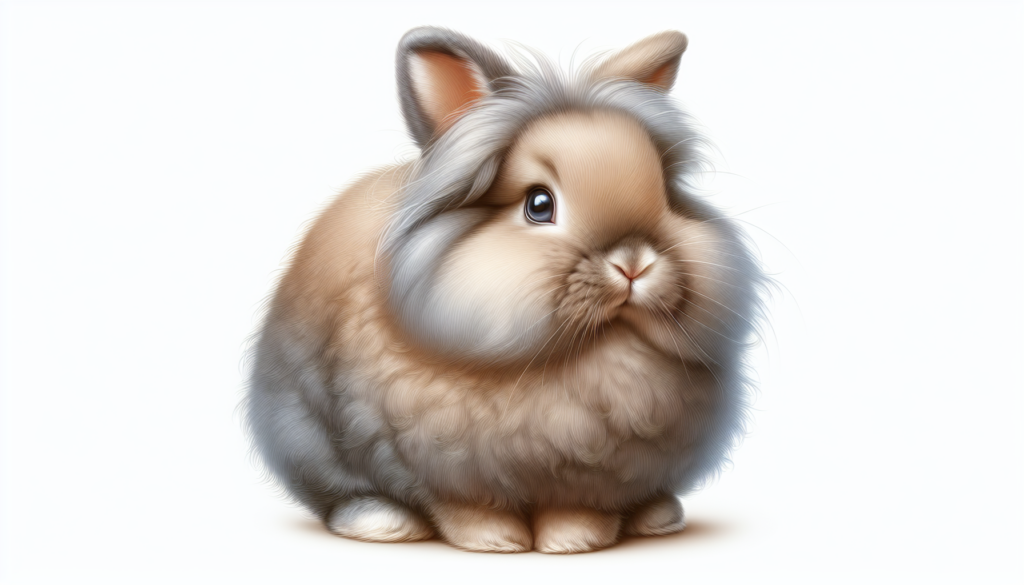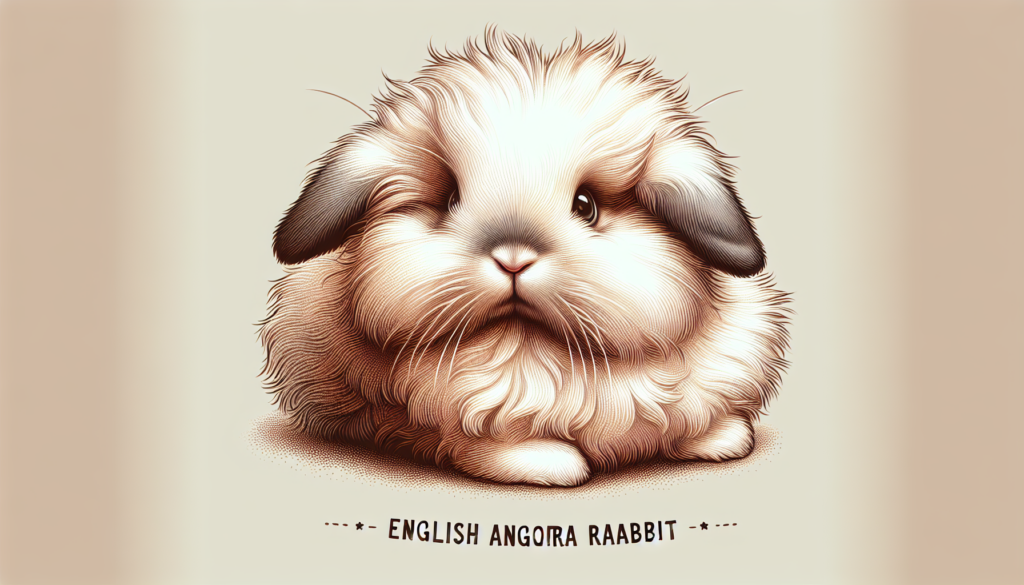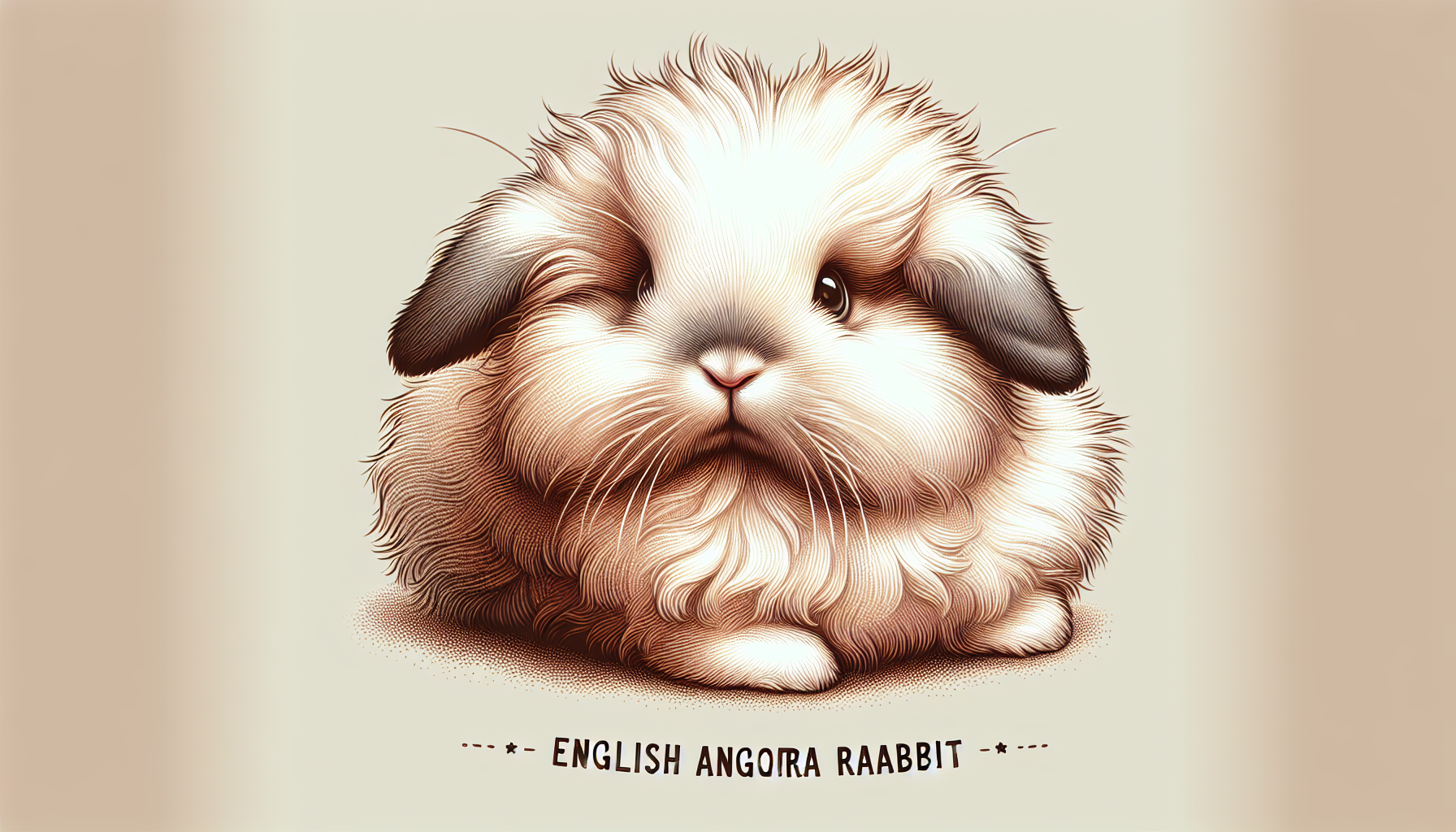Are you considering adding an English Angora rabbit to your family but not sure if they would make a good pet? Well, wonder no more! In this article, we’ll explore the qualities and characteristics that make English Angora rabbits wonderful companions. From their luxurious wool to their affectionate nature, you’ll soon discover why these fluffy and friendly creatures can bring joy and companionship into your life. So, let’s hop right in and explore whether English Angora rabbits are the perfect addition to your home!

Personality and Temperament
Gentle and docile nature
English Angora rabbits are known for their gentle and docile nature. They have a calm and relaxed demeanor, which makes them excellent companions for both individuals and families. Their gentle nature makes them ideal pets for people of all ages, especially those who are looking for a calm and peaceful companion.
Sociable and interactive
English Angora rabbits are highly sociable creatures. They enjoy spending time with humans and thrive on interaction and companionship. These rabbits love being a part of your daily activities and will eagerly follow you around the house, seeking attention and affection. They are known to form strong bonds with their owners and can be extremely affectionate.
Attention-seeking behavior
Another distinctive trait of English Angora rabbits is their attention-seeking behavior. They love being the center of attention and will do anything to grab your focus. Whether it’s hopping on your lap for cuddles or nudging you for scratches, these rabbits have a knack for getting your undivided attention. They enjoy being included in your daily routine and will make sure you never feel lonely with their constant need for love and affection.
Suitability as Family Pets
Friendly and good with children
English Angora rabbits are known for their friendly nature, which makes them excellent family pets. They get along well with children and are tolerant of their playful behavior. These rabbits have a calm disposition and a high tolerance for gentle handling, making them a perfect choice for families with kids. However, it’s important to supervise interactions between children and rabbits to ensure the safety and well-being of both.
Compatibility with other pets
English Angora rabbits are generally compatible with other pets in the household. With proper introductions and supervised interactions, they can coexist peacefully with cats and well-behaved dogs. It’s important to monitor the interactions and provide a safe and secure environment for all animals involved. When introducing a new pet to an English Angora rabbit, gradual introductions and positive reinforcement can help foster a harmonious relationship.
Maintenance and Grooming
High grooming needs
English Angora rabbits have high grooming needs due to their luxurious wool coats. They require regular grooming to prevent matting and to keep their coats clean and healthy. Their long, soft fur is prone to tangling, so proper grooming is essential to maintain their overall well-being.
Regular brushing requirements
To keep an English Angora rabbit’s coat in good condition, daily brushing is recommended. Use a soft-bristled brush or a comb designed specifically for long-haired rabbits. Regular brushing helps remove loose fur, prevent matting, and distribute natural oils throughout the coat for a healthy shine. Additionally, it allows you to bond with your rabbit while keeping their fur free from debris and tangles.
Potential for matting and hairballs
If not groomed regularly, English Angora rabbits can experience matting, which occurs when the fur becomes tangled and forms clumps. Matting can cause discomfort and even health issues if left unattended. Furthermore, the long fur can easily accumulate loose hairs, resulting in the formation of hairballs in the rabbit’s digestive system. Regular brushing and proper maintenance can help prevent these issues and ensure your rabbit’s well-being.
Exercise and Living Space
Moderate exercise requirements
English Angora rabbits have moderate exercise needs. While they enjoy hopping around and exploring their environment, they do not require as much activity as some other breeds. Daily exercise, such as supervised playtime and free roaming in a safe area, will help keep your rabbit physically and mentally stimulated. Engaging toys and tunnels can also provide entertainment and encourage exercise.
Indoor vs. outdoor living
English Angora rabbits are best suited for indoor living. Their long fur requires protection from the elements, and they are sensitive to extreme temperatures. Providing a designated indoor space for your rabbit ensures a safe and comfortable environment. If you do choose to let your rabbit venture outdoors, it should be in a secure enclosure that protects them from predators and harsh weather conditions.
Need for secure enclosures
To ensure the safety of your English Angora rabbit, it is essential to provide a secure enclosure. Rabbits are natural burrowers, and they have the ability to dig and squeeze through small spaces. A sturdy and well-designed enclosure with solid flooring and appropriate barriers will prevent escapes and protect your rabbit from potential hazards. Regular inspections of the enclosure will help identify any wear and tear that needs to be addressed.

Health and Lifespan
Potential genetic health issues
English Angora rabbits, like any purebred animals, can be prone to certain genetic health issues. Some common health concerns in this breed include tooth problems, ear infections, and wool block, which is the accumulation of ingested hair in the digestive tract. Regular check-ups with a rabbit-savvy veterinarian and proper care can minimize the risk of these health issues and ensure your rabbit’s well-being.
Specific care needs
Due to their long fur, English Angora rabbits require specific care to maintain their health. Apart from regular grooming, it is essential to monitor their teeth, as malocclusion can be more common in this breed. Ensuring a balanced diet and providing appropriate toys and chew items can help keep their teeth in good condition. Regular cleaning of their ears and observing any signs of infection is also important for their overall health.
Average lifespan
English Angora rabbits typically have a lifespan of 7 to 12 years when properly cared for. However, with proper nutrition, regular veterinary care, and a safe environment, some rabbits in this breed have been known to live even longer. Providing a loving and nurturing environment, along with a balanced diet and necessary medical attention, can greatly contribute to your English Angora rabbit’s longevity.
Allergies and Sensitivities
Considerations for individuals with allergies
While English Angora rabbits have a reputation for being hypoallergenic, it is important to note that no animal is completely allergen-free. Some individuals may still experience allergies or sensitivities to rabbit dander, saliva, or urine. If you or a family member have allergies, it is crucial to spend time with an English Angora rabbit before committing to ownership to gauge any potential allergic reactions.
Reducing allergens in the environment
To minimize allergens in the environment, regular grooming and maintenance of your English Angora rabbit’s fur are key. This includes frequent brushing to remove loose fur and dander, as well as regular cage cleaning to reduce buildup of allergens. It is also advisable to designate specific areas of the house as “rabbit-free” zones, where individuals with allergies can seek refuge and minimize exposure to potential allergens.
Costs and Time Commitment
Initial purchase cost
English Angora rabbits can vary in price depending on various factors such as pedigree, show quality, and geographical location. On average, an English Angora rabbit can range from $50 to $150, with higher-quality or show-quality rabbits often commanding a higher price. It is important to research reputable breeders or rescue organizations and consider the financial commitment before bringing an English Angora rabbit into your home.
Ongoing expenses
Owning an English Angora rabbit comes with ongoing expenses. These include high-quality rabbit food, fresh vegetables, hay, and bedding. Regular veterinary check-ups, vaccinations, and potential medical treatments should also be factored into the budget. Additionally, the cost of grooming supplies, such as brushes and nail clippers, should be considered. It is important to be financially prepared to provide proper care and meet the needs of your rabbit.
Time spent on grooming and care
English Angora rabbits require a significant time commitment for grooming and care due to their luxurious fur. Daily brushing sessions are necessary to prevent matting, and regular grooming sessions can take up to 30 minutes or more. Additionally, time must be dedicated to providing daily exercise, monitoring the rabbit’s health, and ensuring a clean and safe living environment. It is important to consider the time required to properly care for an English Angora rabbit and ensure you can commit to their needs.
Training and Litter Box Habits
Trainability and intelligence
English Angora rabbits are intelligent animals and can be trained to a certain extent. They can learn basic commands and tricks if provided with positive reinforcement and rewards. However, it is important to note that rabbits have their own unique personalities, and not all will respond to training in the same way. Patience, consistency, and gentle handling are key when working on training sessions with an English Angora rabbit.
Litter box training
Litter box training is a crucial aspect of owning an English Angora rabbit. These rabbits can be trained to use a litter box, much like cats. A large litter box with rabbit-safe litter, such as paper-based or wood pellet litter, should be provided in their enclosure. By placing hay in the litter box and reinforcing positive behavior with treats and praise, you can encourage your rabbit to use the litter box consistently.
Challenges and tips
Training an English Angora rabbit may present some challenges. Rabbits have a natural instinct to mark their territory, and occasional accidents may occur. It is important to be patient and persistent during the training process. Providing multiple litter boxes in various areas and limiting access to areas with potential accidents can help minimize mishaps. Additionally, maintaining a consistent routine and offering plenty of positive reinforcement can aid in successful training.
Responsibilities and Considerations
Long-term commitment
Owning an English Angora rabbit is a long-term commitment that requires dedication and responsibility. These rabbits can live for several years, and their care and well-being should be a top priority throughout their lifespan. This includes providing a healthy diet, regular veterinary check-ups, sufficient exercise, and mental stimulation. It is crucial to consider your ability to commit to the long-term care and companionship of an English Angora rabbit before bringing one into your home.
Time and effort required
Properly caring for an English Angora rabbit requires a significant amount of time and effort. Daily grooming sessions, cleaning their living space, providing exercise and mental stimulation, and monitoring their health all require a commitment of time and energy. Additionally, rabbits are social animals and need regular interaction and attention. It is important to assess your availability and willingness to dedicate the necessary time and effort before adopting an English Angora rabbit.
Proper diet and nutrition
Ensuring a proper diet and nutrition is an essential responsibility when owning an English Angora rabbit. These rabbits need a balanced diet consisting of high-quality commercial rabbit pellets, fresh vegetables, such as leafy greens and carrots, and unlimited access to hay. Proper nutrition is crucial for their overall health, including the condition of their fur and teeth. It is important to research and consult with a veterinarian to create a suitable diet plan that meets your English Angora rabbit’s specific dietary requirements.
Breeding and Raising Angora Rabbits
Considerations for breeding
Breeding English Angora rabbits requires careful consideration and a good understanding of the breed’s breeding requirements. It is essential to have knowledge of genetics, potential health risks, and the responsibility associated with raising and finding suitable homes for the offspring. Breeding should only be undertaken by experienced and responsible individuals who are committed to maintaining the breed’s health and welfare.
Caring for newborns
If you decide to breed English Angora rabbits, it is crucial to be prepared for the care of newborns, known as kits. Newborn kits are dependent on their mother for nourishment and warmth. It is important to provide a safe and comfortable nesting area for the mother rabbit and monitor the kits for proper feeding and development. Regular check-ups with a rabbit-savvy veterinarian can help ensure the health of both the mother and the newborns.
Potential challenges
Breeding and raising English Angora rabbits can present various challenges. The process requires a significant investment of time, resources, and knowledge. Health complications during pregnancy or birth, the need for additional care and support for the mother and kits, and the responsibility of finding appropriate homes for the offspring are all factors to consider. Before embarking on breeding, it is important to thoroughly research, consult with experienced breeders, and ensure you have the necessary resources and expertise to handle potential challenges.
In conclusion, English Angora rabbits can make wonderful pets for individuals and families alike. Their gentle nature, sociable behavior, and attention-seeking tendencies make them lovable companions. However, their high grooming needs, moderate exercise requirements, and specific care considerations should be carefully considered before bringing one into your home. With proper care, love, and commitment, an English Angora rabbit can bring joy and companionship for years to come.
